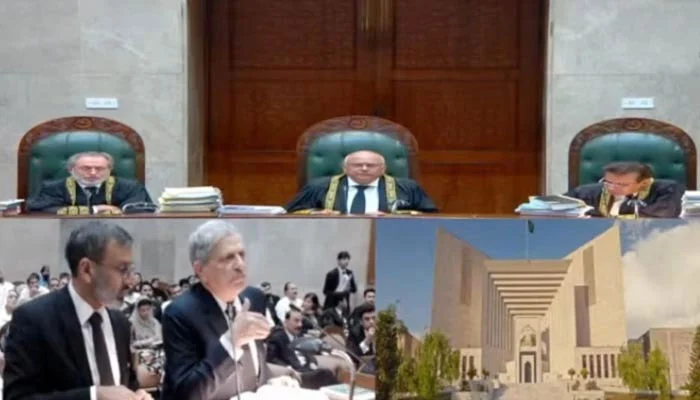In a major legal setback for PTI, the Supreme Court of Pakistan has ruled that the party is no longer entitled to reserved seats for women and minorities in the national and provincial assemblies. This decision came after a full 10-member constitutional bench headed by Justice Aminuddin Khan reviewed and overturned a prior majority judgement, effectively ending PTI’s claim on 77 key reserved seats.
PTI Loses Reserved Seats Battle in Court
The verdict marks the culmination of months of legal wrangling following the 2024 general elections, where over 80 PTI-backed independent candidates joined the Sunni Ittehad Council (SIC) in a bid to secure reserved seats. However, the Election Commission of Pakistan (ECP) had rejected the allocation on procedural grounds, stating that the required list of candidates was not submitted before the deadline.
PTI challenged this through the courts, briefly regaining ground with a Supreme Court ruling in July 2024 that entitled them to the seats. But Friday’s decision nullified that verdict, restoring the March ruling of the Peshawar High Court and reaffirming the ECP’s position. Once again, a legal setback for PTI shifts the political landscape, as the ruling benefits the ruling coalition by reinstating their two-thirds majority in the National Assembly.
Big Legal Setback for PTI as Verdict Reshapes Political Power Structure
The ruling has widespread implications. The PML-N, PPP, JUI-F, and other allied parties stand to retain their additional seats across the National Assembly and provincial assemblies in Punjab, KP, and Sindh. For PTI, which has dominated opposition benches with independent candidates, the decision means a significant reduction in parliamentary strength.
The court cited the SIC’s failure to meet constitutional requirements, including not contesting the election as a party and not submitting a priority list of candidates, as key reasons for denial. While the bench acknowledged PTI’s performance in general seats, it ruled that the legal pathway for reserved seats had not been followed.
This third legal setback for PTI since the February 8 elections casts further uncertainty over its parliamentary influence and future strategies.
Also, see:
Meta Rolls Out AI Chat Summaries on WhatsApp to Help Users Catch Up on Missed Messages
Topics #featured #Pakistan #trending pakistan




